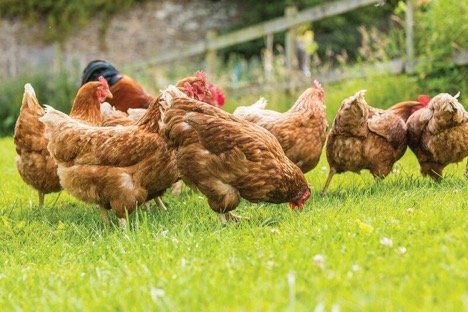
To get a clear understanding of future careers, youths need first-hand exposure to the opportunities.
Youth organizations, schools and the poultry industry itself can help.
Since 2001, the poultry science program has been making a concerted effort to increase the number of students exposed to opportunities in the poultry industry.
Just under 60% of these students were first exposed to poultry through youth programs.
The 4-H program has poultry projects that teach youths how to successfully raise poultry for meat and eggs as well as exhibition flocks.
Enrollment in poultry projects has grown from 500 to over 3,100 youths annually.
These youths develop a genuine knowledge of poultry production and the importance of biosecurity, and are much more likely to look at careers working with poultry and in agriculture than they otherwise would be.
The industry can support meat bird or “egg to egg” projects, or judging contests, by donating eggs, products or chicks.
Industry members can offer tours of their farms, companies or operations with a slant toward the various employment opportunities for post-high school, technical school or college graduates.
Also, developing their understanding of industry practices can improve how our communities view agriculture.
Finally, it is important that youths understand there is a wide array of employment opportunities for all levels of educational and background.
The poultry industry has sustained needs for laborers, truck drivers, mechanical and technical operators, computer and other systems managers, as well as people to manage other employees and the production of birds, product development, food safety, quality assurance, and feed milling, to name a few.
Business/management combines business and the production and management of poultry, and prepares students for careers in business management, advertising, public relations, grow out, breeding, live production, hatchery, feed mill management, computer science or IT support, personnel, and sales and marketing.
The science option features in-depth study of the basic science relevant to animal biology.
Career opportunities include veterinary medicine, graduate study, research and development, nutrition, food processing, safety and quality control, and pharmaceuticals and biotechnology.
The poultry science students also have opportunities to gain valuable work experience through student work in labs, and with research projects, externships, and internships.
Meanwhile, Smallholder poultry production is a significant source of food and income for many rural households.
Household members have different roles in poultry production, with women and youth more actively involved in the earlier steps of the value chain, such as poultry production and processing, particularly at the farm level.
Read Other Articles In Youth Forum

Dynamic youth leader, educator dedicates self to grassroots development
Apr 15, 2025, 11:31 AM




